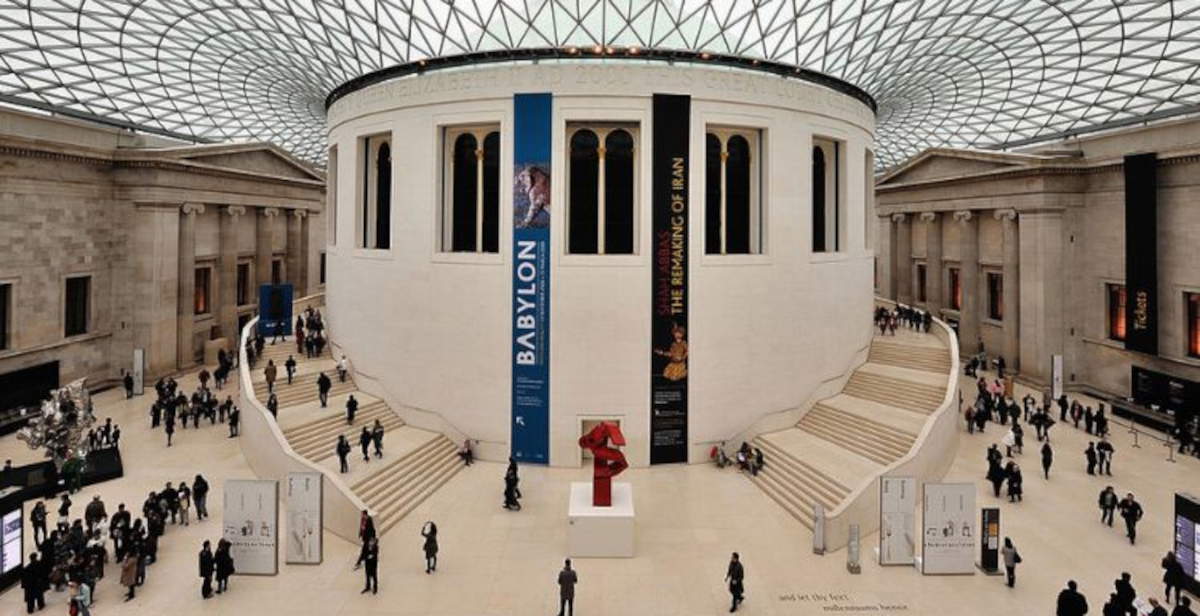The UK Parliament will debate today, July 8, the possibility of banning advertising and sponsorship by fossil fuel companies. The debate, scheduled for 4:30 p.m. local time and streamed live on Parliament’s official website, comes on the heels of a successful public petition that has surpassed 100,000 signatures, a threshold that in the country imposes an institutional obligation for parliamentary debate on the issue.
The demand made by the initiators of the petition concerns the introduction of a ban on the promotion, through advertising and sponsorship agreements, of the activities of coal, oil and gas companies. The reasons behind the initiative point to the role of industrial players in worsening the climate crisis and draw on legislative precedents, such as the ban on tobacco advertising in 2003, which was introduced by the Labor government at the time. Through lengthy documentation, the government stated that it is despite the Kingdom’s “commitment to reducing emissions, there are currently no plans to restrict fossil fuel advertising.”
Broadcaster and environmental activist Chris Packham issued a statement to The Art Newspaper, saying verbatim, “For too long we have allowed those who are guilty of plundering our planet the most-the fossil fuel giants-to green their dirty reputations through advertising and sponsorship. Through multimillion-dollar deals with the British Museum, the Science Museum and many other beloved cultural institutions, companies like BP and Shell effectively ’buy’ their social license to continue operating. We say no more. Tobacco advertising was banned in 2002 because we all know smoking kills. Fossil fuels also kill, so let’s do the ban.”
The most controversial case, and at the center of much controversy, is the £50 million partnership between the British Museum and BP, the British energy giant. The deal was announced in 2023 as part of a fundraising strategy needed to meet the costs of the museum institution’s planned major renovation over the next decade. In a cultural context in which collaborations with fossil fuel companies are becoming increasingly controversial, the arrangement between the London museum and BP has drawn criticism from activists, artists, and parts of the public. “I think you have to have very good and clear reasons for refusing money that would help keep the British Museum free to the public,” argues Nicolas Cullinan, director of the British Museum, on BP’s donation.
Indeed, in recent years, several British cultural institutions have chosen to discontinue sponsorship deals with fossil companies. The National Portrait Gallery, the Tate galleries, and the Royal Opera House have ended their respective relationships with BP, marking a gradual detachment of the cultural world from companies responsible for high levels of climate-changing emissions. The British Museum, while confirming its intention to continue its partnership with BP, has had to publicly provide clarification on the operation and justify its position in the face of mounting criticism.

BP’s announcement of a shift in corporate policies has further fueled the debate. In February 2025, the group announced plans to reduce investment in renewable energy to focus on increasing oil and gas production. The decision reportedly came about as a result of pressure from some investors, who were concerned about lower returns compared to competitors in the sector.
In addition to the British Museum, London’s Science Museum has also come under media scrutiny for its ties to Adani Green Energy. The company is part of the Adani Group, the leading private coal producer globally. The existing agreement between the museum and Adani has raised harsh reactions from the National Education Union, whose representatives organized a protest in front of the cultural institution. The demonstration action sought to involve museum workers, faculty, scientists and families in publicly denouncing the presence of sponsorship by an industrial group that maintains a heavy reliance on coal.
The British government, when officially asked about the possibility of banning advertising and sponsorship by fossil companies, said it had no plans to do so. In an official memo, it reiterated its commitment to reducing emissions generated by high-carbon products, but also clarified that any restrictions on advertising should be left to the independent advertising practice committees and the Advertising Standards Authority, the UK regulator.
Among the voices critical of the presence of fossil fuel companies in major cultural institutions is Frances Morris, director of the Tate Modern from 2016 to 2023. In a statement to The Art Newspaper, Morris expressed outrage at the role she believes museums would play in contributing to fossil-firm greening by helping them build a respectable image through cultural visibility. “As the UK races to meet our net zero targets, the need to combat fossil fuel extraction has never been more urgent,” Morris said. “While many museums, cultural institutions and artists are taking meaningful steps to combat the escalating climate and natural crisis, it is deeply frustrating that some high-profile institutions demonstrate irresponsible leadership and continue to support greenwashing corporate partnership agreements with major planetary polluters. Legislation to ban such agreements is critical. It would free our institutions from the conflicts of interest they currently face in fundraising, allow them to refocus their roles and responsibilities, and help them rebuild the public trust they are currently in danger of losing.”
The issue, at the center of a debate involving environmental, ethical, cultural and economic dimensions, is not a new one, but the current interest is part of a historical phase marked by increasing pressure on governments to take concrete steps in the fight against climate change. The outcome of the Westminster confrontation may not lead to legislative change in the immediate term, but it marks a significant step in the process of redefining the relationship between public institutions, the private sector and environmental responsibilities.
 |
| UK Parliament considers stop to oil company advertising: British Museum in crosshairs |
Warning: the translation into English of the original Italian article was created using automatic tools. We undertake to review all articles, but we do not guarantee the total absence of inaccuracies in the translation due to the program. You can find the original by clicking on the ITA button. If you find any mistake,please contact us.